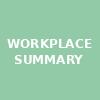Resumes tell a story—but not always the complete one. Traditional hiring methods often rely heavily on past industry experience, titles, or specific degrees, inadvertently excluding talented individuals who possess highly transferable and valuable skills. This approach disproportionately impacts women who have taken career breaks, pivoted between industries or pursued non-linear career paths.
Studies, including recent findings from Harvard Business Review, show that companies that adopt skills-based hiring benefit significantly, experiencing up to 60% higher employee performance and 90% higher retention. This shift allows companies to tap into a diverse, capable, and largely untapped talent pool.
At The Second Shift, we successfully placed investment bankers into CFO roles at small companies, leveraging their strong financial acumen and strategic insight, even if they lacked traditional CFO experience. Similarly, a brand marketer who built a career in publishing possesses transferable marketing and brand-building skills that make them ideally suited to pivot successfully into roles within industries like beauty despite not having direct experience with CPG marketing.
Embracing skills-based hiring isn’t just inclusive; it’s strategic. Organizations thrive when they recognize talent beyond industry-specific experience. It’s time to redefine “qualified” and hire individuals based on what they can achieve, not just what they’ve already done.
Skills-Based Hiring: Unlocking Hidden Potential
In today’s rapidly changing job market, finding the perfect candidate may feel daunting. Companies traditionally rely on industry experience, familiar job titles, and linear career paths to filter applicants. While seemingly efficient, this conventional approach can inadvertently exclude highly skilled candidates who don’t neatly fit within traditional hiring criteria—especially women who are returning to work after breaks, making career pivots, or entering new industries.
Shifting toward skills-based hiring—focusing on transferable capabilities rather than past titles or specific industry experience—can significantly widen the candidate pool and enhance workforce diversity. According to recent data from LinkedIn’s Future of Recruiting Report, organizations prioritizing skills over pedigree see tangible business benefits, including up to 60% improved employee performance and up to 90% better retention rates.
Why does this approach work? When you focus on skills, you capture what predicts job success: adaptability, critical thinking, problem-solving abilities, communication skills, and resilience. Particularly for mid-career women, whose career trajectories often don’t align perfectly with rigid hiring requirements, a skills-first mindset acknowledges the depth of their expertise, regardless of how and where they acquired it.
This hiring shift also provides substantial business benefits. Skills-based organizations foster more inclusive cultures and diverse teams are consistently proven to deliver greater innovation and financial returns. A McKinsey report highlights that companies with higher gender diversity outperform their less-diverse counterparts financially by 25% or more.
At The Second Shift, we’ve witnessed firsthand how hiring based on transferable skills and potential—not just previous titles—helps companies secure exceptional talent they might otherwise overlook. For example, we successfully placed investment bankers into CFO roles at small companies, leveraging their strong financial acumen and strategic insight, even if they lacked traditional CFO experience. Similarly, a brand marketer who built a career in publishing possesses transferable marketing and brand-building skills that make them ideally suited to pivot successfully into roles within industries like beauty despite not having direct experience with CPG marketing.
Embracing skills-based hiring isn’t just inclusive; it’s strategic. Organizations thrive when they recognize talent beyond industry-specific experience. It’s time to redefine “qualified” and hire individuals based on what they can achieve, not just what they’ve already done. Skills-based hiring is not simply a novel approach—it’s a strategic advantage in building robust, diverse, and high-performing teams.
Bottom Line: When you stop limiting your search to industry experience alone and embrace skills-based hiring, you open doors to new talent, better performance, and more inclusive workplaces.
